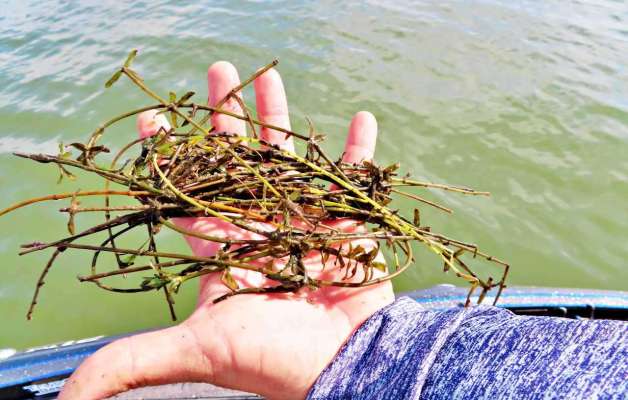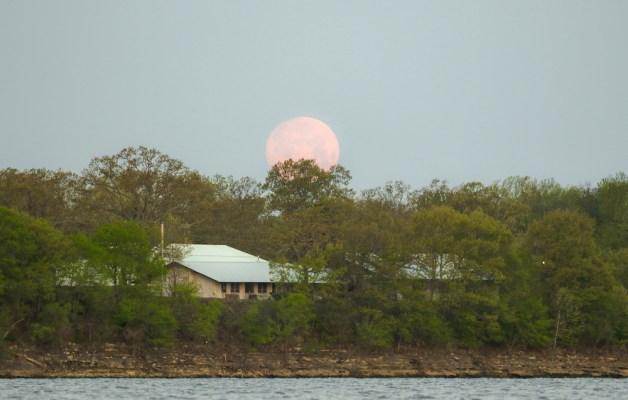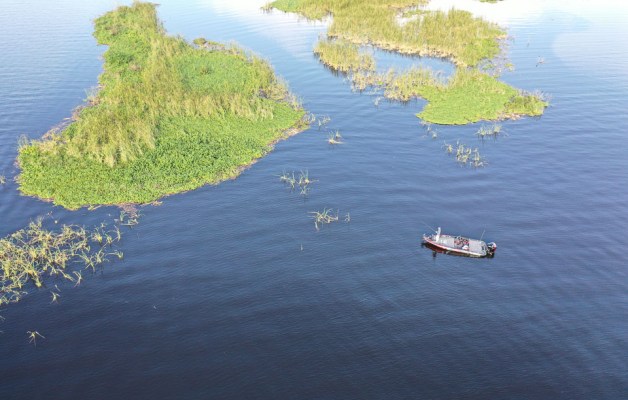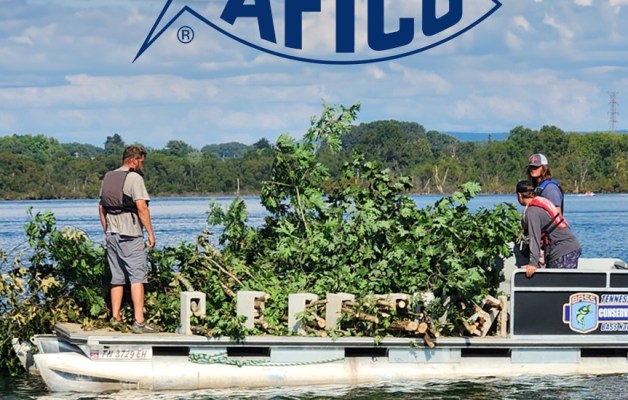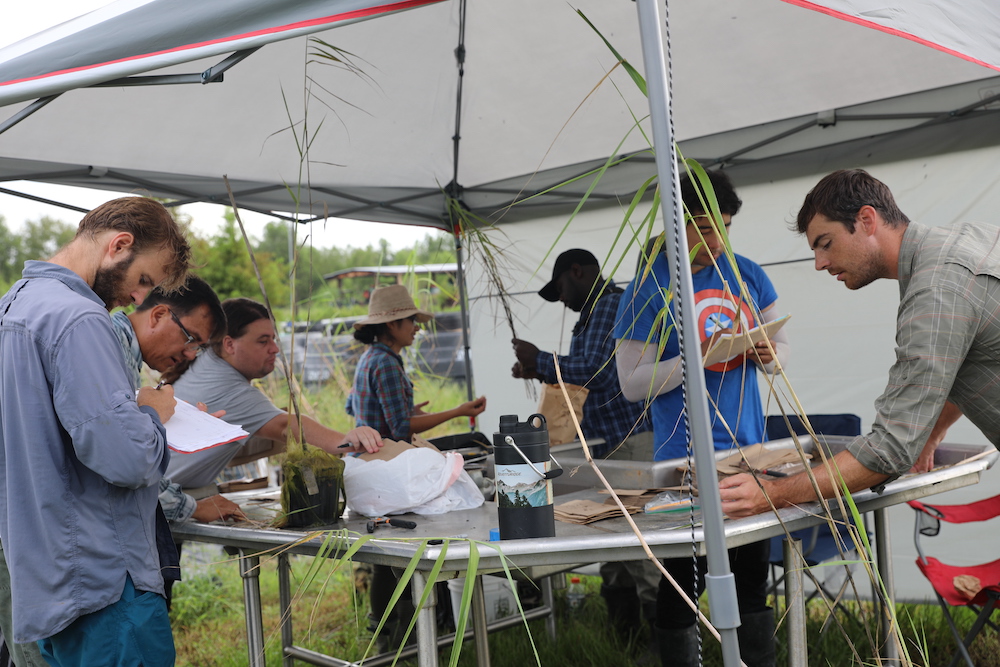
by Annabelle Lang
BATON ROUGE, La. — The world’s largest continuous stand of roseau cane is vanishing from the Mississippi River Delta, and a group of cross-disciplinary researchers is collaborating to find a solution to stop the die-off.
Roseau cane (Phragmites australis), also known as common giant reed, plays a crucial role in coastal health and stability. The hardy cane stabilizes soil in the delta by preventing sediment loss and serves as a habitat for wildlife in the delta, such as young fish and shrimp.
Biologists first noticed large die-offs of cane over thousands of acres in 2016. These die-offs are associated mainly with the roseau cane scale, an invasive insect pest that latches onto the plant’s stem.
Cross-disciplinary researchers with the LSU AgCenter and other state agencies are collaborating to find a solution to controlling the insect and investigating other factors that may contribute to the plant’s health. Their areas of expertise range from entomology to plant pathology to wildlife ecology.
“We just recently completed a large-scale survey where all of our collaborators came together, and we made up these different protocols of the things that we wanted to study, and we all went and collected them at the same sites,” said AgCenter entomologist Josh Snook.
Faculty and graduate students from four LSU College of Agriculture departments recently traveled to the Mississippi River Delta, Atchafalaya Basin, Rockefeller Refuge and Vermillion Bay to collect samples and record the health of the roseau cane.
Together they pulled soil cores to study soil health, leaf tissues to analyze metabolomics, and collected stems for scale density measurements and rhizome depth.
Gathering a robust collection of samples helps researchers to better understand the biotic and abiotic stressors that are present in areas where the cane is healthy and where it’s dying off.
Snook is researching the cane’s rhizomes which are located below ground and how the scale insect affects it.
“For my project, we are trying to see how the density of the scales affects the growth and health of the above stem and also the below ground rhizome,” Snook said.
The rhizome stabilizes the cane below ground and stores nutrients for the plant, providing the cane with an energy base to grow back each year. Snook is collaborating with wetland ecologists to see if abiotic factors, such as soil quality, influence the plant’s health.
As a team, researchers from the four labs shared their expertise to assess the plants decline across Louisiana’s coast.
“We measured stem density and stem heights. We identified all the other vegetation that was there and its density. We also flew drones to map the stands of roseau cane,” Snook said. “So, we are approaching many aspects of the issue, but it was really cool to have everyone together out on the boats going and doing that multidisciplinary survey.”
Rodrigo Diaz, associate professor in the AgCenter Department of Entomology, coordinates the statewide surveys of roseau cane and documents changes in the lower Mississippi River Delta.
“With this multidisciplinary project, we are trying to understand the contribution of different stressors to plant decline,” he said. “As you can imagine, the Mississippi River Delta has different types of sediment, water depth and storm exposure, to name a few factors.”
Diaz relies on a team of students to help conduct a project at this magnitude. Allowing students to have hands-on experience with complex research helps recruit the next generation of scientists.
Brad Chauvin, a natural resource ecology and management major, became involved with the project after enrolling in one of Diaz’s classes and learning about biocontrol.
“I took his invasive species class. I knew I wanted to do something with ecosystem management, and I had no idea how big and broad the field was,” Chauvin said.
Chauvin assists doctoral student Tanner Sparks with biological control research.
“I literally get to be out in the field doing hands-on work and not just in the lab processing data, which is my favorite part,” Chauvin said.
“We’re very happy that the students have had a chance to address multidisciplinary ecological questions,” Diaz said. “Each of these students may be able to see that there are different stressors affecting the plant, so they would have the vision of assessing a problem from different angles.”
Ultimately, the team’s goal from the collaborative effort is to make some management suggestions of roseau cane across the state.

